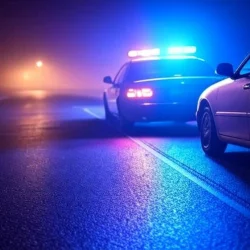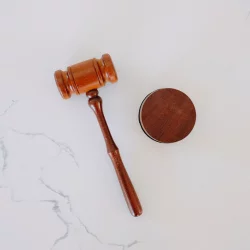5 Tips to Help Avoid a DUI Conviction
If you are ever arrested for drunk driving (also called DUI for “driving under the influence” or DWI for “driving while intoxicated”), your experience will begin with an officer stopping you because of some questionable driving pattern, or possibly because you encountered a DUI “sobriety checkpoint” or you were involved in an accident. The officer will approach your car and ask some questions. You will then be asked to perform “field sobriety tests”. He may also ask you to breath into a handheld device, technically called a PBT or “preliminary breath test”. You will then be arrested. On the way to the police station, you will be asked to submit to a breath or blood test — and told that if you don’t, your driver’s license will be suspended.
What should you do and say during all of this to minimize the risk of a criminal conviction and a license suspension?
1. Politely decline to answer any questions without an attorney present. It is a cardinal rule in legal circles that only incriminating statements are included in police reports and later testified to in court; statements pointing to innocence are invariably ignored, forgotten or misinterpreted. Bluntly put, whatever you say will almost never help you and can only hurt you.
2. Decline to take any so-called field sobriety tests. These are theoretically intended to determine impairment, but in fact are designed for failure. In most cases, the officer has already made the decision to arrest and is simply going through the motions and gathering further evidence to bolster his case (he is the one who decides whether you “pass” or “fail”). In almost all states, you are not required to submit to this “testing”. It’s unlikely that taking it will change the officer’s decision to arrest.
3. Decline to take a “PBT” (preliminary breath test). These handheld units are carried by officers in the field to help decide whether to arrest or not and are notoriously inaccurate. In most states, drivers are not required to submit to these tests (in some they are required if you are under 21). Although most states admit the results of these tests into evidence only to show the presence of alcohol, some permit them to prove the actual blood-alcohol level.
4. Do you choose blood, breath — or refuse to take any chemical test? This is a case-by-case decision, and involves a number of considerations. First, although blood tests are subject to many possible errors, they are generally more accurate than so-called “breathalyzers”; if you feel your blood-alcohol level is below .08%, then you might want to choose the blood test. Secondly, whether to submit to testing at all requires some knowledge of your state’s laws — specifically, the consequences of refusing. If the increased criminal penalty and license suspension do not outweigh the possible benefit of depriving the prosecution of blood-alcohol evidence, then you may wish to refuse. Bear in mind that the prosecution will charge you with two offenses, DUI and driving with over .08% blood-alcohol; without a blood or breath test, he cannot prove the .08% charge, and there will be no chemical evidence to corroborate the officer’s testimony. You should also realize that in many states chemical evidence of a very high blood-alcohol level, say over .15%, can trigger more severe penalties.
5. In almost all states, your driver’s license will be immediately suspended if either (1) the chemical tests results are .08% or higher, or (2) you refuse to submit to testing. You have a right to a hearing to contest this administrative suspension, and there are many possible defenses, many of them technical in nature. This hearing is usually separate from the criminal proceedings, and involve different procedures and issues than in court; it is not uncommon to lose the criminal case but win the suspension hearing. However, as most motor vehicle departments do not really want the time and expense of providing these hearings, they tend to provide notice of the right buried in fine print given to arrestees. The critical information is the requirement that an actual demand for the hearing must be made by the arrestee — usually within ten calendar days. If you do not contact the DMV within ten days, you lose all rights to a hearing — no matter how good a defense you may have. Tip 5: Get an attorney right away, or make the call yourself — and make sure you can later prove you made the call within the ten day window!
Lawrence Taylor is a former prosecutor, Fulbright professor of law, and author of the standard legal textbook, “Drunk Driving Defense, 5th Edition”. He heads an 8-attorney DUI defense firm in Los Angeles. See http://www.losangelesduilaw.com for more information.
More to Read:
Previous Posts:



